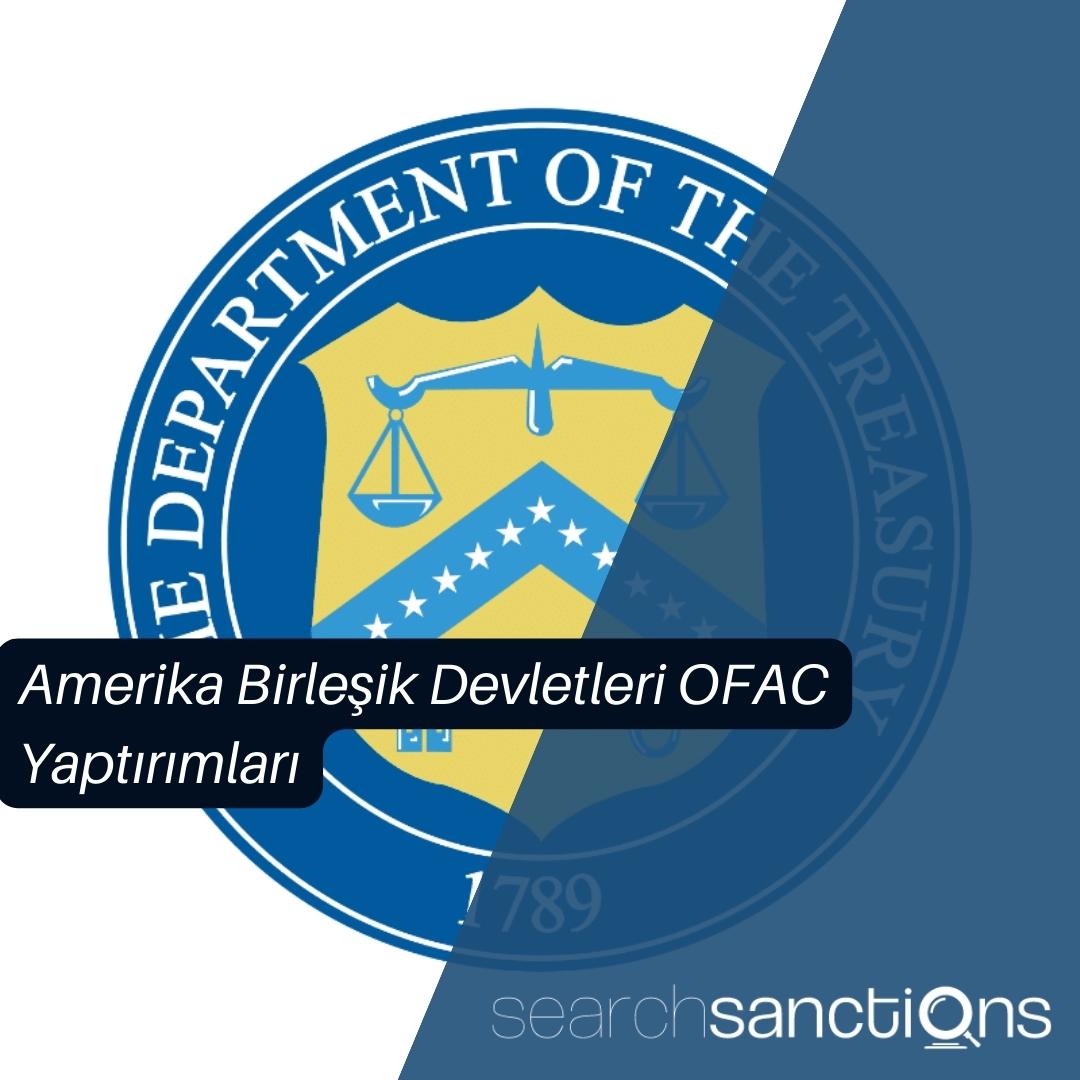United States OFAC Sanctions: International Relations and Economic Impacts

As part of international relations, states and international organizations seek to influence the policies and behavior of other countries using a variety of tools. Sanctions are one of the most prominent of these, and the United States of America (USA) is a major player in this field with worldwide influence. The US Office of Foreign Assets Control (OFAC) is an agency that implements sanctions policies used to protect US national security, foreign policy and international economic interests.
What is OFAC and what does it do?
The United States OFAC (Office of Foreign Assets Control) is an agency of the US Department of the Treasury. OFAC is in charge of enforcing the US government's sanctions policies and controlling foreign assets. OFAC aims to protect the national security, foreign policy and international economic interests of US citizens and entities when conducting trade and financial transactions with foreign governments.
OFAC sets prohibitions and restrictions on countries, persons and entities that the United States sanctions. These sanctions can affect trade, finance and other economic activities and are therefore of great importance to both the international community and the business community.
Types of OFAC Sanctions
OFAC sanctions can be applied in a variety of ways for different purposes. The main types of OFAC sanctions are as follows:
Asset Freezing: OFAC may freeze the assets of certain individuals or entities in the United States. This does not authorize these individuals or entities to conduct financial transactions or use assets within the United States.
Trade Restrictions: OFAC may restrict or prohibit trade with certain countries or persons. These trade restrictions can prevent trade in certain products or services with those countries.
Financial Sanctions: OFAC may prohibit the provision of financial services to certain persons or entities. This limits their access to the US financial system.
Arms Embargoes: OFAC can impose arms embargoes, such as the supply of arms and military equipment to specific countries or individuals.
Lists of Persons and Entities: OFAC maintains an extensive database of individuals and entities subject to sanctions. Transactions with persons and entities on these lists are strictly monitored. These lists prepared by OFAC help US businesses and financial institutions to check the persons and entities with whom they will conduct transactions before imposing sanctions.
Lifting Sanctions: OFAC has the authority to lift or relax sanctions for sanctioned persons or countries under certain circumstances. This can occur as a result of policy changes or affirmative action by a country.
Accountability and Reporting: OFAC expects US entities to rigorously enforce their sanctions and compliance policies. Organizations should regularly check whether the persons with whom they transact are on sanctions lists. There are also circumstances in which OFAC must be notified of any sanctions violations or suspicious transactions.
Impact of OFAC Sanctions on International Relations
OFAC sanctions have a significant impact on international relations. These impacts can include:
Diplomatic Tensions: OFAC sanctions can cause the United States to experience diplomatic tensions with certain countries. Sanctions can be imposed as a reaction to a country's policies, which can complicate diplomatic relations.
Economic Impacts: OFAC sanctions can harm the economies of targeted countries. Trade restrictions and financial sanctions can negatively affect a country's foreign trade and international financial transactions.
Human Rights and Humanitarian Impacts: In countries targeted by sanctions, the living conditions of the population may be adversely affected. Basic humanitarian needs may become harder to meet, leading to human rights violations.
International Trade and Business Relations: OFAC sanctions could limit international trade by US companies. This could lead to complications and losses in international business relations.
Economic Impact of OFAC Sanctions
OFAC sanctions have economic effects, often across multiple dimensions:
Exchange Rates and Financial Markets: OFAC sanctions can devalue the target country's currency and cause volatility in financial markets.
Trade in Goods and Services: Trade restrictions can negatively affect trade in goods and services between the US and the target country. This could lead to losses in certain sectors.
Business Relations and Investments: OFAC sanctions could limit the ability of US companies to do business in the target country and affect investments.
Business Impacts of OFAC Sanctions
OFAC sanctions also affect the business community and may include
Compliance Obligation: US businesses must comply with OFAC sanctions. This entails regularly checking sanctions lists, monitoring persons and entities to be dealt with, and minimizing the risk of violations.
Risk Management: Businesses should consider the potential impact of OFAC sanctions on their business processes and develop risk management strategies. This can help prevent sanctions violations in the conduct of their business.
Business Opportunities and Losses: While OFAC sanctions can limit or prevent access to certain markets, they can also create new opportunities. Businesses should shape their strategies to take into account the constraints imposed by sanctions.
Advertising and Image: Businesses should consider the international public perception of OFAC sanctions. Businesses that comply with these sanctions can create a more positive image in terms of social responsibility.
Legal and Criminal Liability: Violating OFAC sanctions can have legal and financial consequences. Violating businesses may face high fines and reputational damage.
Request Demo
You can contact us as to our services, integration processes, request demo or customized solutions.

